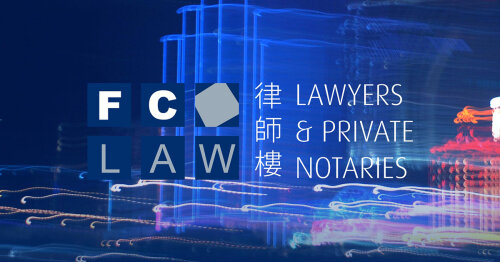Best Communications & Media Law Lawyers in Beijing
Share your needs with us, get contacted by law firms.
Free. Takes 2 min.
List of the best lawyers in Beijing, China
About Communications & Media Law in Beijing, China:
Communications & Media Law in Beijing, China governs the legal aspects surrounding the content and distribution of information through various communication channels, including traditional media, digital media, telecommunications, and the internet. These laws aim to regulate communication activities to ensure legality, accuracy, and protection of individuals' rights.
Why You May Need a Lawyer:
You may need a lawyer specializing in Communications & Media Law in Beijing, China for various reasons, including defamation claims, copyright infringement issues, contract disputes, licensing agreements, privacy violations, regulations compliance, and challenges related to digital media platforms.
Local Laws Overview:
In Beijing, China, Communications & Media Law is governed by various regulations, including the Cybersecurity Law, the Online Publishing Service Management Regulation, the Broadcasting Regulations, the Copyright Law, and the Anti-Unfair Competition Law. These laws cover a wide range of issues, such as internet censorship, data protection, intellectual property rights, advertising regulations, and media ownership restrictions.
Frequently Asked Questions:
1. What constitutes defamation in Communications & Media Law in Beijing, China?
Defamation refers to the act of making false statements that harm a person's reputation. In Beijing, China, defamation can be both civil and criminal offense, and individuals may face legal consequences for spreading false information about others.
2. How are intellectual property rights protected in Communications & Media Law in Beijing, China?
Intellectual property rights, including copyrights, trademarks, and patents, are protected through various laws and regulations in Beijing, China. Individuals and companies can seek legal remedies for any infringement of their intellectual property rights.
3. Are there restrictions on foreign ownership of media companies in Beijing, China?
Yes, there are restrictions on foreign ownership of media companies in Beijing, China. Foreign entities may need to comply with specific regulations and obtain relevant permits to operate in the media industry.
4. How can I ensure compliance with advertising regulations in Beijing, China?
To ensure compliance with advertising regulations, individuals and businesses should familiarize themselves with the relevant laws, such as the Advertising Law and the Anti-Unfair Competition Law. It is advisable to seek legal advice to avoid any violations.
5. What are the key provisions of the Cybersecurity Law in Beijing, China?
The Cybersecurity Law in Beijing, China regulates various aspects of cybersecurity, including data protection, network security, critical information infrastructure protection, and cybersecurity incident response. Organizations operating in Beijing should adhere to these provisions to avoid legal liabilities.
6. Can I be held liable for content posted by users on my website in Beijing, China?
As a website owner, you may be held liable for user-generated content, especially if it violates laws related to defamation, intellectual property rights, or public morality. It is essential to implement proper content moderation mechanisms and comply with relevant regulations to mitigate legal risks.
7. How are privacy rights protected in Communications & Media Law in Beijing, China?
Privacy rights are protected through various laws and regulations, such as the Personal Information Protection Law and the Cybersecurity Law. Individuals have the right to control their personal data and can seek legal remedies for any breach of privacy rights.
8. What are the penalties for violating Communications & Media Laws in Beijing, China?
Penalties for violating Communications & Media Laws in Beijing, China may include fines, injunctions, content removal orders, license revocation, civil damages, and even criminal charges in severe cases. It is crucial to comply with the law to avoid legal consequences.
9. Can I sue for copyright infringement in Communications & Media Law in Beijing, China?
Yes, individuals and companies can sue for copyright infringement in Communications & Media Law in Beijing, China. Copyright holders have the right to seek legal remedies, such as damages, injunctions, and content takedowns, against infringers.
10. How can I resolve a dispute related to Communications & Media Law in Beijing, China?
To resolve a dispute related to Communications & Media Law in Beijing, China, individuals can seek legal advice from a qualified lawyer specializing in this field. Alternative dispute resolution methods, such as mediation or arbitration, may also be considered to resolve conflicts efficiently.
Additional Resources:
For more information on Communications & Media Law in Beijing, China, you can refer to the China Law Blog, the China Internet Network Information Center (CNNIC), the National Copyright Administration of China (NCAC), and the State Administration of Press and Publication of China (SAPP).
Next Steps:
If you require legal assistance in Communications & Media Law in Beijing, China, it is advisable to consult with a reputable law firm specializing in this field. A qualified lawyer can provide personalized advice, representation in legal proceedings, and guidance on how to navigate the complex legal landscape effectively.
Lawzana helps you find the best lawyers and law firms in Beijing through a curated and pre-screened list of qualified legal professionals. Our platform offers rankings and detailed profiles of attorneys and law firms, allowing you to compare based on practice areas, including Communications & Media Law, experience, and client feedback.
Each profile includes a description of the firm's areas of practice, client reviews, team members and partners, year of establishment, spoken languages, office locations, contact information, social media presence, and any published articles or resources. Most firms on our platform speak English and are experienced in both local and international legal matters.
Get a quote from top-rated law firms in Beijing, China — quickly, securely, and without unnecessary hassle.
Disclaimer:
The information provided on this page is for general informational purposes only and does not constitute legal advice. While we strive to ensure the accuracy and relevance of the content, legal information may change over time, and interpretations of the law can vary. You should always consult with a qualified legal professional for advice specific to your situation.
We disclaim all liability for actions taken or not taken based on the content of this page. If you believe any information is incorrect or outdated, please contact us, and we will review and update it where appropriate.











